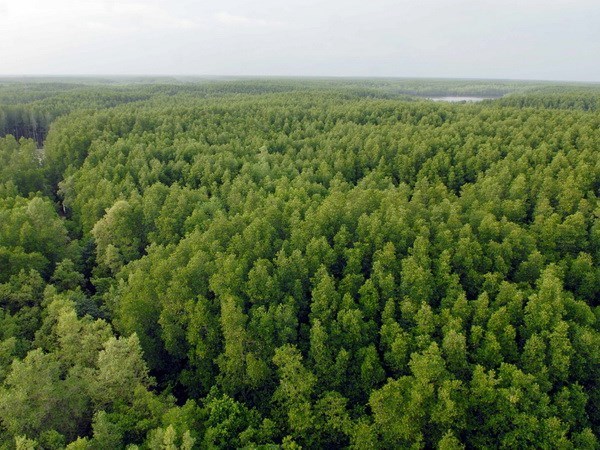
The Can Gio Mangrove Biosphere Reserve (Photo: VNA)
The Can Gio Mangrove Protection Forest Management Board has leased out forests to 144 local households and 12 agencies and units, which has proven effective.
The city expects to complete mechanisms and policies on the management and planning of the reserve in the time to come, Nguyen Xuan Hoang, deputy director of the municipal Department of Agriculture and Rural Development, told a seminar in the city on July 23.
At the same time, it will mobilise the participation of residents and involved parties in such efforts, step up communications work, and study the livelihoods of those living around the buffer zone, he added.
Apart from establishing forest protection posts, the city will also coordinate closely with local authorities and armed forces in forest management and protection and work to strengthen ties between forest rangers and residents around the buffer zone.
According to Hoang, the reserve is set to become an attractive eco-tourism site.
Regarding the Can Gio sea encroachment project, also known as the Can Gio tourism urban area project, Professor and Dr Nguyen Hoang Tri, Chairman of the National Committee on the Human and Biosphere Programme, affirmed that the project will have no environmental or social impact.
Nearly 60 km from the centre of HCM City, Can Gio was recognised by UNESCO as a World Biosphere Reserve with primeval forests and abundant floral coverage. It was also the site of a number of glorious battles throughout Vietnam’s history.
The Can Gio Mangrove Biosphere Reserve covers more than 70,000 ha and occupies more than one-third of HCM City’s total area. It is located in Can Gio district, previously known as Duyen Hai district. The area is situated along a recently-formed estuary complex of tidal flats, where the Vam Co, Sai Gon, and Dong Nai Rivers discharge into the sea.
Historically, this land, also known as the Sac Forest Guerrilla Base, was a key battleground in the country’s resistance wars against French and US aggressors./.
VNA
 Ministry proposes centralised platform for electronic labour contracts
Ministry proposes centralised platform for electronic labour contracts



